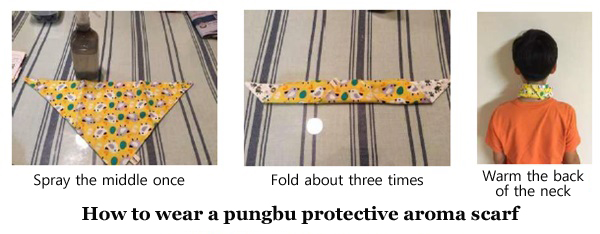The government’s pilot program to help enhance children’s health through promoting oriental medicine is lacking in substance, industry sources said Monday.
Run by the Ministry of Health and Welfare보건복지부 at public health centers across the nation, the so-called oriental medicine health enhancement program has been focusing on the promotion of oriental medicine hospitals, instead of educating children about essential treatments such as herbal medicine intake, acupuncture, and moxibustion, they said.
In collaboration with the Korea Health Promotion Institute, the ministry has been running pilot program at 17 public health centers to promote the health of young children and teenagers. The six-week program will end on Sept. 30.
The government said it has completed educating local government officials about the pilot program. Under the program, officials at each public health center and local oriental medicine doctors visit children’s homes or middle and high schools to educate them about oriental medicine.
Devised up in detail by Sangji University상지대, the program for young children consists of several themes – visiting oriental medicine hospitals, experiencing treatments and learning about medicinal herbs, watching a video to find out how to do children’s oriental stretching exercises, drinking pear juice mixed with herb extracts, wearing aromatherapy scarves to warmly protect neck and educating parents.
Taking herbal medicines or participating in acupuncture or moxibustion were replaced with drinking pear juice, due to concerns raised by some parents as well as different health conditions of children.
The oriental stretching exercises were replaced by an eight-minute video clip because it was not applicable to children under 5.
The six-week long program also includes visiting oriental medicine hospitals and clinics, observing and smelling healing herbs, following an eight-minute instruction to do oriental stretching exercises such as repeatedly clenching one’s fists and releasing them.
To educate young children how to prevent catching a cold, the program recommends wearing aromatherapy scarves, drinking juice made with pear, bellflower and mountain herb once or twice a week.

A survey carried out by the university’s research team on 296 children at three day-care centers, after running the pilot program, showed that the program helped reduce the number of children’s visits to hospitals and clinics to 2.06 per month from 2.38. The number of lateness, early leave, and absence due to illness also went down to 0.68 day per month from 0.83.
The research team recommended designating local oriental medicine doctors as part-time physicians and encouraged parents to see oriental medicine doctors if their children are in weak condition. Such efforts will raise awareness of oriental medicine and help people feel more comfortable about it, the team said.
Education to prevent smartphone addiction, meditation, massage, exercise, and aromatherapy
Another pilot program for teenagers, developed by Wonkwang University, is focusing on enhancing mental health, which includes the prevention of the addiction to the use of the Internet and smartphones, not focused on physical problems such as obesity, precocious puberty or sleep disorder.
The “Oriental Medicine Program to Prevent Smartphone Addiction” had three types – general type for four times of education and four times of arbitration, educational type for four times of teaching and abridged one for two times of training and two times of arbitration.
The educational content includes recognizing adolescent period as the beginning of lifelong health, knowing smartphones and the Internet right, managing health through oriental medicine and managing smartphone addiction by oriental medicine.
The content for arbitration includes meditation, massage, exercises, and aromatherapy.
Participating in the program are oriental medicine doctors at public health centers, government officials for oriental medicine business, experts on physical activities, external oriental medicine doctors and specialists on addiction.
Unlike the program for young children, teenagers can get acupuncture and other related treatments depending on their symptoms.
The research team at Wonkwang University said they hope to collaborate with the education office, public health centers, and medical professionals to build a local network and apply for the program as a model for public health at schools.
“We hope that the pilot program can help children and teenagers grow their bodies healthy and manage their sound lifestyles,” said an official at the Korea Health Promotion Institute, adding that they will offer the program for teenagers at all public health centers across the nation next year.

